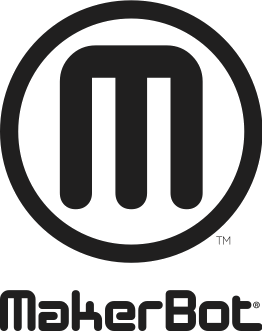
A fab lab is a small-scale workshop offering (personal) digital fabrication.

RepRap is a project to develop low-cost 3D printers that can print most of their own components. As open designs, all of the designs produced by the project are released under a free software license, the GNU General Public License.
Markham Public Library (MPL) is a library system operated by the municipal government of the City of Markham in Canada. There are eight branches in the city, serving about 250,000 residents in Markham. The libraries are managed by the Administration Centre, located at 6031 Highway 7.

A hackerspace is a community-operated, often "not for profit", workspace where people with common interests, such as computers, machining, technology, science, digital art, or electronic art, can meet, socialize, and collaborate. Hackerspaces are comparable to other community-operated spaces with similar aims and mechanisms such as Fab Lab, men's sheds, and commercial "for-profit" companies.

TechShop was a chain of membership-based, open-access, do-it-yourself (DIY) workshops and fabrication studios. As of 2017 they had ten locations in the United States: three in California, one in Arizona, one in Arlington, Virginia, one in Michigan, one in Texas, one in Pittsburgh, Pennsylvania, one in St. Louis, Missouri, and one in Brooklyn, New York, as well as four international locations.

MakerBot Industries, LLC was an American desktop 3D printer manufacturer company headquartered in New York City. It was founded in January 2009 by Bre Pettis, Adam Mayer, and Zach "Hoeken" Smith to build on the early progress of the RepRap Project. It was acquired by Stratasys in June 2013. As of April 2016, MakerBot had sold over 100,000 desktop 3D printers worldwide. Between 2009 and 2019, the company released 7 generations of 3D printers, ending with the METHOD and METHOD X. It was at one point the leader of the desktop market with an important presence in the media, but its market share declined over the late 2010s. MakerBot also founded and operated Thingiverse, the largest online 3D printing community and file repository. In August 2022, the company completed a merger with its long-time competitor Ultimaker. The combined company is known as UltiMaker, but retains the MakerBot name for its Sketch line of education-focused 3D printers.

The maker culture is a contemporary subculture representing a technology-based extension of DIY culture that intersects with hardware-oriented parts of hacker culture and revels in the creation of new devices as well as tinkering with existing ones. The maker culture in general supports open-source hardware. Typical interests enjoyed by the maker culture include engineering-oriented pursuits such as electronics, robotics, 3-D printing, and the use of computer numeric control tools, as well as more traditional activities such as metalworking, woodworking, and, mainly, its predecessor, traditional arts and crafts.

Open Source Ecology (OSE) is a network of farmers, engineers, architects and supporters, whose main goal is the eventual manufacturing of the Global Village Construction Set (GVCS). As described by Open Source Ecology "the GVCS is an open technological platform that allows for the easy fabrication of the 50 types of industrial machines that it takes to build a small civilization with modern comforts". Groups in Oberlin, Ohio, Pennsylvania, New York and California are developing blueprints, and building prototypes in order to test them on the Factor e Farm in rural Missouri. 3D-Print.com reports that OSE has been experimenting with RepRap 3-D printers, as suggested by academics for sustainable development.

Ultimaker is a 3D printer-manufacturing company based in the Netherlands, with offices and assembly lines in the US. They make fused filament fabrication 3D printers, develop 3D printing software, and sell branded 3D printing materials. Their product line includes the Ultimaker S5 and S3, Ultimaker 3 series, Ultimaker 2+ series and Ultimaker Original+. These products are used by industries such as automotive, architecture, healthcare, education, and small scale manufacturing.

Y Soft Corporation is a multinational software and electronic hardware company founded in 2000, which operates in 21 countries. The company's headquarters are in Brno, Czech Republic, with offices in France, Hungary, Denmark, Israel, United Kingdom, United Arab Emirates, United States, Japan, Singapore, Australia, and China.

Made In Space, Inc., is an American company specializing in the engineering and manufacturing of three-dimensional printers for use in microgravity. Headquartered in Jacksonville, Florida, Made In Space's 3D printer was the first manufacturing device used in space.

A library makerspace, also named Hackerspace or Hacklab, is an area and/or service that offers library patrons an opportunity to create intellectual and physical materials using resources such as computers, 3-D printers, audio and video capture and editing tools, and traditional arts and crafts supplies. In the field of library science, makerspaces are classified as a type of library service offered by librarians to patrons.
Xinchejian is the first hackerspace in China. It was founded in 2010 by David Li, Ricky Ng-Adam, and Min Lin Hsieh in Shanghai, inspired by hackerspaces in the West and the Shanzhai culture of China. Xinchejian is registered as a company, but is run as a non-profit organization, and managed by volunteers.
School organizational models are methods of structuring the curriculum, functions, and facilities for schools, colleges, and universities. The organizing of teaching and learning has been structured since the first educational institutions were established. With greater specialization and expertise in a particular field of knowledge, and a gathering of like-minded individuals, instructors clustered into specialized groups, schools, and eventually departments within larger institutions. This structure spread rapidly during the 19th and 20th centuries with factory model schools and their "assembly-line" method of standardized curriculum and instructional methods. Beginning with the progressive educational movement in the early-mid 20th century, and again with similar trends in the late 20th and early 21st century, alternative models structured towards deeper learning, higher retention, and 21st century skills developed. The organizational models of schools fall into several main categories, including: departmental, integrative, project-based, academy, small learning communities, and school-within-a-school.
Maker education closely associated with STEM learning, is an approach to problem-based and project-based learning that relies upon hands-on, often collaborative, learning experiences as a method for solving authentic problems. People who participate in making often call themselves "makers" of the maker movement and develop their projects in makerspaces, or development studios which emphasize prototyping and the repurposing of found objects in service of creating new inventions or innovations. Culturally, makerspaces, both inside and outside of schools, are associated with collaboration and the free flow of ideas. In schools, maker education stresses the importance of learner-driven experience, interdisciplinary learning, peer-to-peer teaching, iteration, and the notion of "failing forward", or the idea that mistake-based learning is crucial to the learning process and eventual success of a project.
Makers Empire 3D is a 3D modeling computer program made by Makers Empire. It is designed to introduce 4-13 year old students to Design Thinking and engage them in STEM learning via 3D design and 3D printing. The 3D app is optimized for touch screens but can be used with and without a mouse on all major platforms.

Naomi Wu, also known as Sexy Cyborg, is a Chinese DIY maker and internet personality. As an advocate of women in STEM, transhumanism, open source hardware, and body modification, she attempts to challenge gender and tech stereotypes with a flamboyant public persona, using objectification of her appearance to inspire women.
NextFab Studio, LLC is a network of membership-based makerspaces with locations in Philadelphia and Wilmington. Founded in 2009 by Evan Malone, the for-profit company opened its first location in West Philadelphia’s University City Science Center.

Creality, officially known as Shenzhen Creality 3D Technology Co, Ltd., is a Chinese 3D printer manufacturing company established in 2014, with headquarters located in Shenzhen.














